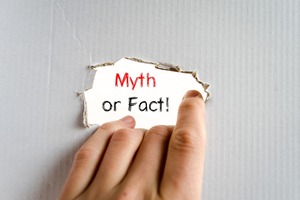There are plenty of Americans who are just a few dollars away from making ends meet. If they earned just a little bit more or their credit card payments each month were a little less, it would be enough to give them a cushion so they could save for an emergency. Unfortunately, that little bit more or less never seems to come, and they are left feeling hopeless and desperate for a solution.
The good news is there is a solution.
It’s possible for someone with a moderate income who has assets to use bankruptcy as a means by which to lower their high-interest loans.
When people think of lowering their loans, they often consider contacting credit card companies or refinancing loans. This can help, especially on a month to month basis, but long-term, they’re looking at paying far more than the original amount of the loan. Refinancing often comes with extended terms, which means over the entirety of the loan you’re paying even more than you originally agreed to.
And since many of these people are in somewhat decent financial shape – they aren’t excessively late on payments, they’re getting by, they own assets – they don’t believe bankruptcy is an option for them.
Chapter 13 vs. Chapter 7 Bankruptcy
It’s true: Chapter 7 bankruptcy probably isn’t the right solution in these circumstances. You don’t want to do anything that puts your assets at risk or requires you to start from scratch because you’ve built a respectable financial situation.
However, filing for Chapter 13 bankruptcy could be right for you if you’re struggling.
For starters, Chapter 13 forces creditors to accept the amount of money you can afford to pay. You pay zero interest on your credit cards, which if you haven’t done the math yet, can save you a bundle. Often more than the amount of the original loan!
Chapter 13 bankruptcy creates for you a repayment plan that lasts anywhere from 36 to 60 months. Your income over the course of the last several months determines the length of your repayment, and at the end of that term, any remaining debt is discharged. This means you are no longer legally responsible for paying what you owed, if there is anything still owed at the end of the repayment plan.
Filing for Chapter 13 bankruptcy also allows you to keep your property, so you won’t lose your home or other assets.
To read more about the differences between Chapter 7 and Chapter 13 bankruptcies, check out this article from Experian.
Struggling to Meet Financial Obligations?
This is a solution for those who are struggling to keep up with credit card payments and feel as if the more they pay each month the more they owe. They are stuck in a cycle of high-interest debt that might not ever end, even if they ever manage to make minimum payments due.
So why wait? The longer you postpone filing for Chapter 13 bankruptcy the more money you are throwing away. Chapter 13 will help you get organized and get on the right track to repairing your financial situation.
For more information or to learn more about how Chapter 13 bankruptcy can help you deal with high-interest debt, contact the Law Offices of Robert M. Geller at 813.254.5696 to schedule a free consultation.



























![Signs That You May Need to File Bankruptcy [Infographic]](https://djml3wkzi26ea.cloudfront.net/wp-content/uploads/2021/01/signs-chap7-v-chap13.jpg)
![How To File for Bankruptcy [Infographic]](https://djml3wkzi26ea.cloudfront.net/wp-content/uploads/2020/07/bankruptcy-steps-infographic-web.jpg)










